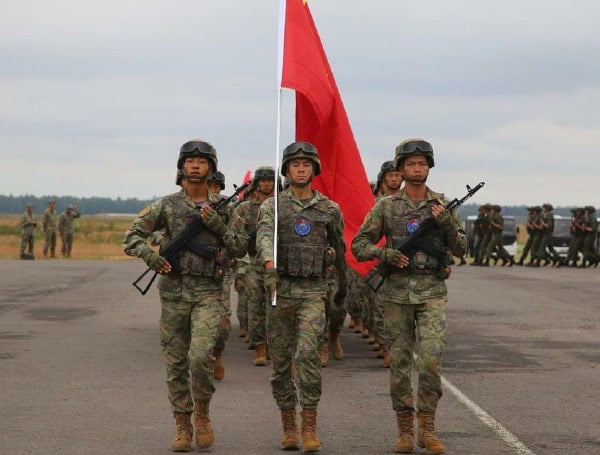Chinese authorities have intensified efforts to expand their influence in Taiwan, targeting media outlets, social influencers, and regional economic integration as part of a multi-faceted approach. Taiwanese government agencies, including the National Security Bureau (NSB) and the Ministry of Justice Investigation Bureau (MIJB), launched an investigation in July into claims that a Chinese state-run media reporter had illegally participated in a Taiwanese political talk show’s production.
The investigation, prompted by a report from Liberty Times, alleged that Xinhua News Agency’s Zhao Bo, acting at the request of China’s Taiwan Affairs Office, participated in editorial discussions and script creation for the program.
Taiwan’s Mainland Affairs Council (MAC) has confirmed the allegations and stated that while investigation results will not be publicly disclosed, relevant findings will be passed to prosecutors.
READ: Ukraine Reports Escalation In Russian Executions Of Ukrainian POWs, Launches New Investigation
Beyond traditional media, the Chinese Communist Party (CCP) is reportedly reaching out to Taiwanese YouTubers and internet celebrities. In June 2024, several influencers revealed CCP attempts to recruit them to promote pro-Beijing narratives and support CCP-aligned political parties. These contracts allegedly involve hosting events and shows endorsing closer cross-strait ties.
Meanwhile, the Taiwan Affairs Office (TAO) announced a series of economic measures to transform Fujian Province into a hub for cross-strait integration. The new policies, announced by TAO Spokesperson Zhu Fenglian on October 30, include relaxed market access for Taiwanese businesses, the establishment of the Fuzhou-Matsu “industrial cooperation park,” and the creation of a Pingtan cross-strait market zone. These steps are part of an initiative launched in 2023 to position Fujian as a “demonstration zone” for integration, offering incentives to strengthen economic and social exchanges between Taiwan and mainland China.
Some earlier Fujian initiatives, such as the “Fuzhou-Matsu City Pass,” have already garnered support among residents in Taiwan’s outer islands, which have shown interest in such policies due to economic ties with mainland China. By building economic dependency and fostering cross-strait engagement, China seeks to create political resistance within Taiwan to policies favoring decoupling.
READ: Fed Cuts Interest Rates Again As Inflation Cools And Trump Wins Election
Chinese President Xi Jinping recently reinforced this approach during an October visit to Fujian, where he underscored the importance of making Fujian a driver for cross-strait integration. His tour, following a round of military exercises around Taiwan, signaled his direct involvement in both the diplomatic and military aspects of cross-strait relations.
Although official accounts of Xi’s visit avoided mentioning the exercises, analysts see his visit as an attempt to emphasize China’s vision of peaceful integration while underscoring its military presence.
The combined media, social, and economic influence efforts represent a growing push by the PRC to reshape Taiwan’s perception of cross-strait relations, aiming to shift public opinion in Taiwan in favor of closer ties with the mainland.
Please make a small donation to the Tampa Free Press to help sustain independent journalism. Your contribution enables us to continue delivering high-quality, local, and national news coverage.
Android Users: Download our free app to stay up-to-date on the latest news.
Connect with us: Follow the Tampa Free Press on Facebook and Twitter for breaking news and updates.
Sign up: Subscribe to our free newsletter for a curated selection of top stories delivered straight to your inbox.

